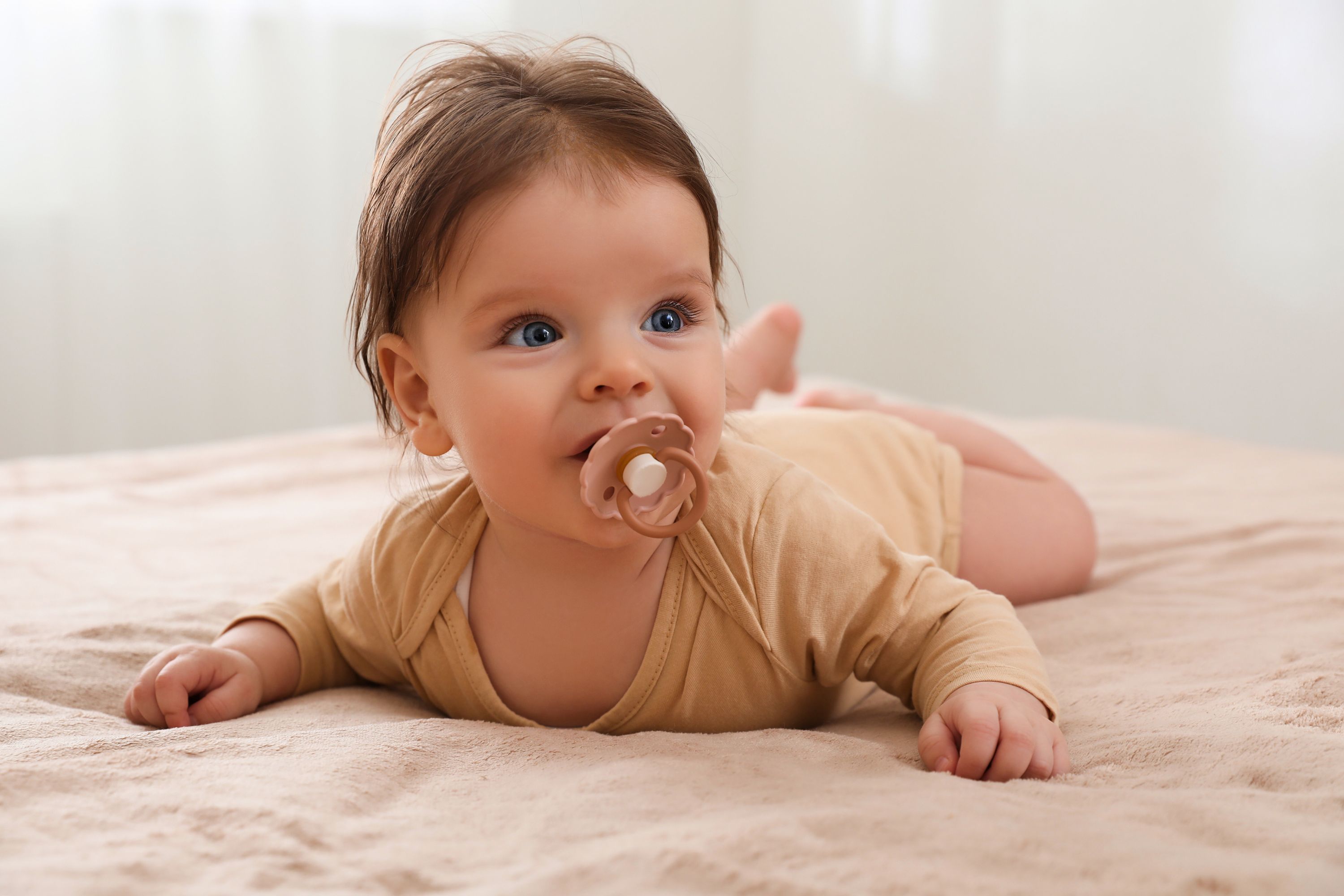Overexposure To Baby Pacifiers Can Impact The Language Skills Of Infants By The Time They Reach 2-Years-Old, According To New Research

Among young children, the use of pacifiers is common across different regions all over the world. Up to 85 percent of Western infants use one during any point in their development.
Generally, pacifier usage decreases as children grow older. But some parents allow their babies to continue sucking on the comfort aid long after they should stop.
Be careful not to subject your baby to pacifiers too often! Scientists are warning parents that overexposure to pacifiers can affect the language skills of infants by the time they reach two years of age.
A new study examined 1,187 infants from Oslo, Norway, to explore the link between pacifier usage and speech/language.
The infants were split up into two age groups: 12-month-olds and 24-month-olds. The parents of each child were asked to give in-depth hourly reports of how frequently they were letting their baby soothe themselves with a pacifier.
Across intervals of two months, the team of researchers was able to calculate the total number of hours that a pacifier was in use over the course of childhood, which is known as Lifespan Pacifier Use (LPU).
In addition, parents were asked if their child could recognize Communicative Development Inventories (CDIs), which are lists of words that are common in the vocabularies of each age group. The team found that 24-month-olds were familiar with up to 731 words.
The results of the study showed that children with a higher LPU knew less vocabulary when they reached two years old. Furthermore, they had lower scores in vocabulary comprehension and production. This made them more likely to be in the lower percentile for vocabulary size.
In some cases, the number of hours for pacifier usage for babies with dependent tendencies was lowered. The researchers observed that controlling the number of hours did not lead to changes in vocabulary. Speech constraints were removed, but limitations to development remained steadfast.
New Africa – stock.adobe.com – illustrative purposes only, not the actual baby
Sign up for Chip Chick’s newsletter and get stories like this delivered to your inbox.
In the United States, pacifier usage peaks at around three months. There are some health benefits to using a pacifier.
For instance, pacifiers can ease discomfort and prevent sudden infant death syndrome (SIDS). However, the American Academy of Pediatric Dentistry still recommends stopping pacifier use by the age of three primarily due to physical concerns.
Pacifier dependence can contribute to dental issues and increased risk of middle ear infections. Now, the latest research shows that extensive pacifier use poses not only physical problems but also social ones, interfering with child development.
When infants use pacifiers for too long, it can limit the amount of time they spend practicing verbal communication, which, in turn, impairs vocabulary growth.
They are unable to work on making sounds and forming words as often as they should be. Overall, the more an infant uses a pacifier, the smaller their vocabulary is.
The study was published in Developmental Science.
Welcome to Billionaire Club Co LLC, your gateway to a brand-new social media experience! Sign up today and dive into over 10,000 fresh daily articles and videos curated just for your enjoyment. Enjoy the ad free experience, unlimited content interactions, and get that coveted blue check verification—all for just $1 a month!
Account Frozen
Your account is frozen. You can still view content but cannot interact with it.
Please go to your settings to update your account status.
Open Profile Settings